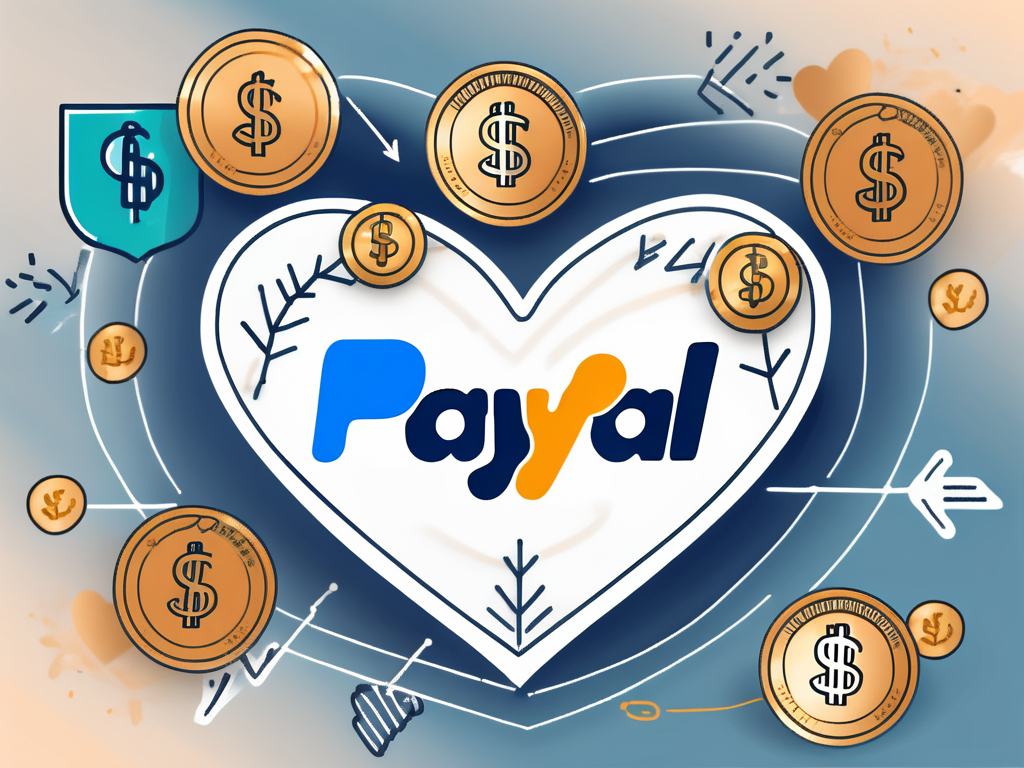Understanding PayPal Nonprofit Fees: A Comprehensive Guide

Understanding the fee structure of payment processing, especially for nonprofits, can significantly impact their fundraising efforts. In this comprehensive guide, we will delve into the specifics of PayPal’s nonprofit fees, how they function, and the various benefits they offer. By the end of this article, nonprofits will have a clearer understanding of what to expect when using PayPal for their charitable activities.
Introduction to PayPal Nonprofit Fees
When nonprofits consider using PayPal as their payment processor, it is crucial to familiarize themselves with the associated fees. These fees can influence the total amount received from donations and can affect budgeting. Nonprofit organizations need to maximize their funds, and understanding these fees is the first step toward that goal.
What are PayPal Nonprofit Fees?
PayPal nonprofit fees refer to the transaction fees that PayPal charges to nonprofit organizations when they receive donations. These fees are typically lower than standard PayPal business fees but can vary based on several factors, including the type of transaction and the geographic location of both the donor and the recipient.
The fees usually encompass a percentage of the total transaction amount plus a fixed cost per transaction. This structure can impact how much net revenue a nonprofit actually receives after processing donations through PayPal. For instance, a donation of $100 might incur a fee of 2.2% plus $0.30, resulting in a net amount of approximately $97.50 for the organization. Such calculations are crucial for nonprofits as they plan their budgets and fundraising activities.
Why are these fees important for nonprofits?
Understanding PayPal nonprofit fees is essential as it directly relates to the financial health of an organization. High fees can reduce the amount of funding available for programs and services, while lower fees can allow nonprofits to allocate more funds where they are needed most.
Furthermore, being aware of these fees allows nonprofits to set realistic fundraising goals, communicate more effectively with donors about how their contributions are being used, and ultimately, foster greater trust through transparency. Additionally, nonprofits can explore ways to mitigate these fees, such as encouraging donors to cover transaction costs or opting for larger one-time donations instead of smaller recurring ones, which might incur multiple fees over time. By strategically addressing the impact of these fees, organizations can enhance their fundraising efforts and ensure that a greater portion of each donation goes directly to their mission.
Nonprofits can also benefit from utilizing PayPal’s various features, such as customizable donation buttons and recurring donation options, which can help streamline the donation process and potentially increase donor engagement. By leveraging these tools, organizations can create a more user-friendly experience that encourages supporters to contribute more frequently and generously. As the landscape of online giving continues to evolve, staying informed about transaction fees and payment processing options is vital for nonprofits striving to maximize their impact in the communities they serve.
The Structure of PayPal Nonprofit Fees
The structure of PayPal nonprofit fees is specifically designed to support charitable organizations while ensuring they can effectively process donations. By examining the fee breakdown, nonprofits can make informed decisions about using PayPal as their payment processor.
Fee Breakdown for Nonprofits
Typically, PayPal charges a discounted rate for nonprofits compared to standard business accounts. While the exact fee structure can vary, nonprofits often enjoy transaction fees of around 2.2% plus a fixed fee (for example, $0.30 per transaction) for domestic donations.
International donations, however, can incur higher fees due to currency conversion and cross-border transactions. Nonprofits should consider these factors when planning fundraising drives that may attract international contributions. Understanding the implications of these fees is crucial, as they can significantly impact the total amount received from donations. For instance, a $100 donation from an international donor could result in a noticeable deduction from the final amount, prompting nonprofits to strategize on how to best communicate this to their supporters.
Understanding the Transaction Fees
Transaction fees are the core of PayPal’s service model. For nonprofits, these fees are applied whenever they receive donations, regardless of the donor’s payment method (credit cards, debit cards, or PayPal balance).
PayPal also offers additional features, such as the ability to create donation buttons for websites or campaigns, which can be a valuable tool for nonprofits looking to increase their reach and accessibility to potential donors. However, nonprofits should be mindful that each transaction via these features still incurs a fee. Furthermore, PayPal provides integration options with various fundraising platforms, allowing nonprofits to streamline their donation processes. This integration can enhance user experience, making it easier for donors to contribute, while also providing nonprofits with real-time tracking of donations. Such features can be particularly beneficial during high-traffic fundraising events, where every second counts in capturing donor interest and ensuring a smooth transaction process.
How to Qualify for PayPal Nonprofit Fees
To take advantage of PayPal’s nonprofit fee structure, organizations must qualify as a nonprofit entity. Understanding how to meet the eligibility criteria is essential for accessing these discounted rates.
Eligibility Criteria for Nonprofits
To qualify for PayPal’s nonprofit rates, a charity must typically possess 501(c)(3) status in the United States. This designation indicates that the IRS recognizes it as a tax-exempt organization under the Internal Revenue Code. Nonprofits with this status can receive tax-deductible donations, making them more appealing to potential donors who want to maximize their philanthropic impact.
Nonprofits operating under other classifications or outside the U.S. may need to provide additional documentation to confirm their status and may face different fee structures accordingly. For instance, organizations based in Canada might need to present their registered charity number, while those in the UK may be required to show their charity registration with the Charity Commission. Understanding these nuances is crucial for international nonprofits aiming to leverage PayPal’s services effectively.
The Application Process
Applying for PayPal nonprofit status is a straightforward process. Interested organizations should visit the PayPal website and create a business account. During the application process, they’ll need to provide their nonprofit documentation to be considered for reduced fees. This may include proof of their 501(c)(3) status, articles of incorporation, and a copy of their bylaws, ensuring that PayPal can verify their legitimacy as a nonprofit entity.
Once approved, nonprofits will have access to a dedicated profile that allows them to manage donations efficiently and track their fundraising initiatives effectively. This profile not only simplifies the donation process but also provides valuable insights through reporting tools, enabling organizations to analyze donor behavior and optimize their fundraising strategies. Additionally, nonprofits can integrate PayPal buttons on their websites, making it easier for supporters to contribute directly, thus enhancing their overall fundraising potential.
Benefits of Using PayPal for Nonprofits
Utilizing PayPal can present numerous benefits for nonprofits beyond simply lower fees. The platform’s reputation, user-friendly interface, and comprehensive resources make it an attractive choice for organizations seeking to enhance their fundraising capabilities. In an increasingly digital world, having a trusted payment processor can significantly impact donor confidence and willingness to contribute, ensuring that nonprofits can focus on their mission rather than worrying about financial transactions.
Advantages of PayPal’s Nonprofit Fees
One of the primary advantages of using PayPal for nonprofits is the reduced transaction fees. This can lead to significant savings, particularly for organizations that rely on frequent donations. Additionally, PayPal’s platform supports recurring donations, enabling nonprofits to develop a consistent funding stream over time. This feature not only stabilizes cash flow but also fosters a sense of community among donors, who may feel more connected to the cause through regular contributions.
Moreover, the ability to integrate with various website builders and social media platforms helps broaden a nonprofit’s reach, making it easier to promote fundraising campaigns. Nonprofits can leverage social media to share compelling stories, updates, and calls to action, driving traffic to their donation pages. The seamless integration allows organizations to create a cohesive online presence that can attract new supporters and retain existing ones.
How PayPal Supports Nonprofit Organizations
Beyond providing lower fees, PayPal offers various tools and resources designed specifically for nonprofits. This includes the ability to set up donation pages, personalized branding options, and analytics tools that help organizations track and analyze fundraising progress. By utilizing these tools, nonprofits can gain valuable insights into donor behavior, allowing them to tailor their outreach strategies and enhance engagement with their supporters.
Furthermore, PayPal frequently runs promotional campaigns, offering special incentives for nonprofits during specific events or seasons, which can enhance fundraising efforts even further. These initiatives can include matching donation drives or fee waivers for specific fundraising events, providing nonprofits with the opportunity to maximize their impact. Additionally, PayPal’s extensive network allows organizations to tap into a wider audience, as many users are already familiar with and trust the platform for their online transactions, making it easier to convert casual visitors into committed donors.
Common Misconceptions about PayPal Nonprofit Fees
Despite its advantages, there are some misconceptions surrounding PayPal nonprofit fees that can deter organizations from utilizing the service. Let’s address a few of these common myths.
Debunking Myths about Nonprofit Fees
A prevalent misconception is that PayPal charges exorbitant fees compared to other payment processors. While the rates for standard business accounts may be higher, PayPal’s nonprofit rates are generally competitive, making them a solid option for many organizations.
Another myth is that nonprofit status guarantees no fees at all. While PayPal provides discounted rates, it does not eliminate fees altogether, so nonprofits should still plan accordingly.
Facts vs Fiction: PayPal Nonprofit Fees
In reality, understanding the facts about PayPal’s fee structure can help nonprofits make more informed decisions. For instance, it’s crucial to know that while domestic transactions are typically cheaper, international ones may incur higher costs.
Additionally, nonprofits should explore different fundraising strategies that can further reduce costs, such as encouraging donors to cover transaction fees at checkout, which can keep more money in the charity’s pocket.
In conclusion, navigating the world of PayPal nonprofit fees is vital for any organization looking to maximize its fundraising potential. By understanding the fee structure, qualifying for discounted rates, and leveraging the platform’s benefits, nonprofits can enhance their ability to serve their communities effectively.
As you explore the benefits of PayPal’s nonprofit fees and seek to maximize your fundraising potential, remember that a robust digital presence can significantly amplify your impact. BlueWing, a paid media management agency for nonprofits, is dedicated to helping organizations like yours harness the power of paid social media, search, and the Google Ad Grants program. With our expertise in managing nonprofit paid media campaigns and a commitment to keeping you informed with weekly updates, we’re here to build a sustainable growth engine for your cause. Contact us today to learn how we can help you outperform industry benchmarks and elevate your digital fundraising efforts.





